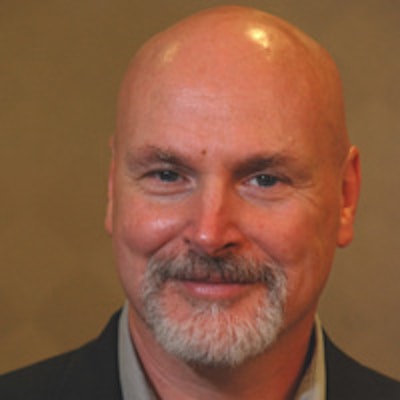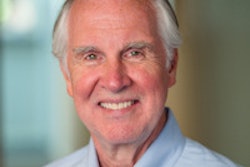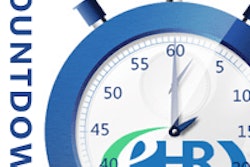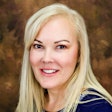
Four year ago, when I wrote my first article for DrBicuspid.com, I argued that the dental software industry was poised to follow in the footsteps of the medical software industry in its development of electronic health records (EHRs).
 Healthcare IT expert Michael Uretz.
Healthcare IT expert Michael Uretz.In hindsight, it appears I was a bit early in my predictions.
But having just returned from conducting the first EHR workshop for the Minnesota Dental Association, I can honestly say that the dental EHR revolution has begun. Fueled by the recent Minnesota EHR mandate, the interest by attendees was phenomenal. We had more than three times the number we had anticipated, filling the ballroom to capacity. In addition, I found the questions from those in attendance -- mostly dentists and practice administrators -- regarding EHRs extremely interesting and worthy of discussing in this month's column.
Here is a sample of the questions and concerns that were brought up before, during, and after the workshop.
I'm retiring -- why should I care?
I had a few dentists share with me that they were on the brink of retirement and contemplating selling their practices. So obviously they questioned whether they should make an investment in EHR technology at this point.
On the surface, why would it make sense to go ahead and implement an EHR system? Putting patient care aside for a moment, there is a strong case to be made for dentists incorporating EHRs into the practice workflow for financial reasons prior to selling their practices. And this can be attested to by lessons learned over the years from physicians who have been less than successful at retiring and selling their practices because they were either paper-based or using older, outdated software technology.
I had an interesting conversation a couple of months ago with a recent dental school graduate who told me that at both his dental school and others his colleagues had attended, it was common to use sophisticated EHR technology during training. His frustration came when he got in the "real" world and couldn't find a practice to either purchase or join with the clinical software tools he had grown accustomed to.
Isn't this technology mostly for group practices and dental service organizations?
I had interesting discussions with owners of small practices who felt that because of the personal nature of the relationships between patient and provider in a small practice, EHR technology should be left to the larger groups. However, in cases when a patient was trying to decide between a smaller or larger group practice, my experience has shown that technology can be a great equalizer for smaller practices. In addition to the personal relationships a smaller practice affords, don't many patients want to know that their providers are also using the most up-to-date technology to manage their care? During the Minnesota workshop, we discussed many EHR features, including having updated dental research and patient education at your fingertips, real-time medication lists, and electronic coordination of the referral process.
Someone also pointed to a recent study that questioned whether inputting EHR information during a patient exam could "get in the way" of the personal interaction between patient and provider. To this we can only look at the history of how tablet EHR technology has grown in the medical industry -- to the point where tablet and mobile technology can in many cases enhance the interaction between patient and provider.
What if my present software company doesn't have some of the EHR features you describe?
There is a rampant belief in the dental industry that a practice's dental software vendor will just incorporate whatever features are needed as technology progresses. While this is true in some cases, it is not necessarily the rule, especially when it comes to the growing complexity of clinical software.
During the workshop, as attendees learned how EHR features will grow and morph over time, and viewed a number of examples, some of them started opening their eyes to the possibility that their present vendor might not keep up with the innovations. They wanted to know what options they had if software they had become dependent on over the years fell behind. I pointed out that technology changes, and practices shouldn't be held hostage by the notion that they can't transition to an alternative if the present solution doesn't meet their needs. As long as practices have control of their clinical and administrative data, they would be doing themselves a disservice if they weren't aware of options available in the marketplace.
One attendee asked why vendors would spend the resources and money to constantly innovate and incorporate new EHR features. The answer is that, just as is in the medical industry over the past 10 years, competition and the need for improved patient care and practice efficiencies are driving EHR innovation.
What about cloud-based EHRs, HIPAA, and practice liability?
One of the more lively sessions in the EHR workshop was a discussion surrounding the new HIPAA omnibus rules and practice liability as they relate to cloud-based EHRs. We had some good questions about patient data liability in a cloud-based world, given that the database resides in the cloud.
One of the things I pointed out to the attendees was that a practice must do its due diligence in evaluating cloud-based vendors, because there are various rules and regulations to ensure that a patient database is HIPAA-compliant. In addition, in the case of a data breach, although the data center or cloud-based vendor is liable, the dental practice can potentially be liable as well. Practices should expect to sign a business associates agreement (BAA) with their software vendor. If the vendor won’t execute a BAA, be very suspicious
All in all, I was excited to hear all the questions and comments coming from the attendees because it confirmed the level of interest -- and confusion -- surrounding the dental EHR revolution. As EHRs gather momentum throughout this industry, I look forward to conducting more workshops and seminars to answer your questions and help you learn how dental EHR technology can improve your practice and patient care.
Mike Uretz is a 30-year software veteran and a healthcare software and EHR expert. Uretz has consulted with hundreds of practices and multiclinic groups to help them properly evaluate and select their software solutions, structure and negotiate contracts, and provide management and oversight for their implementations. He is the founder and editorial director of DentalSoftwareAdvisor.com. He can be contacted at [email protected].



















